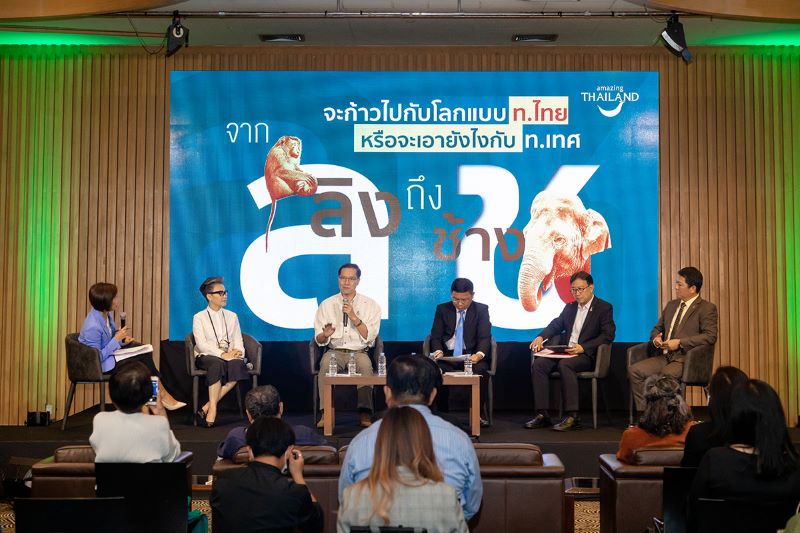
(TAN): The Tourism Authority of Thailand (TAT) will step up collaboration and communication with the Thai government authorities to better monitor the elephant tourism attractions in response to foreign media reports about alleged abuse and mistreatment.
The issue was discussed at a special forum organised by TAT on August 14 at the Bangkok Art and Culture Centre. The forum was initiated by Srisuda Wanapinyosak, TAT deputy governor of international marketing – Europe, Africa, Middle East and Americas, and she also shared TAT’s initiatives on Elephant Care Tourism at the forum.
[ALSO READ: Florida tourist attraction Coral Castle sues video game Fortnight for using its name]
Elephants have played a very important role in Thai society and culture beyond just their economic value. Thailand has more domesticated elephants than anywhere else in the world, TAT said in a statement.
The COVID-19 pandemic has seriously affected the elephant tourism attractions. Their owners and hundreds of employees are in a state of crisis with no income. Without tourists, providing the elephants with basic health and hygiene care is not possible. Because they are large animals, caring for them costs significantly more than other animals, especially if they are sick.
Releasing elephants back to nature is also difficult and unsustainable. Domesticated elephants are unfamiliar with life in the forest and can pose a danger if they venture into townships and villages. But most importantly, the dwindling forest areas are not enough for these elephants.
[ALSO READ: Holland America extends suspension of cruise operations till December 15]
TAT Governor Yuthasak Supasorn said, “This forum was designed to brainstorm amongst a broad cross-section of stakeholders in response to media reports about alleged maltreatment of animals (monkeys and elephants) for tourism.”
There are more than 3,000 elephants in the tourism business or reared elephants nationwide. They live in 250 elephant camps in 22 provinces across the country. Research by the Faculty of Economics, Chiang Mai University has estimated that elephants generate over THB 6 billion (USD 192 million) a year in tourism income.
Yuthasak said, “In the past, elephants were mostly trained and nurtured for deployment in the forestry industry. After 1989, the government issued a decree to abolish forest concessions without measures to support them. As such, the domesticated elephants found it difficult to return to their natural habitat, and tourism offered one alternative means of survival. As a result, similar to many other sectors in those times, elephants have taken on a new role in the tourism industry. Hence, TAT can and should play an important role in solving problems and creating a more sustainable sector.”
[ALSO READ: European Travel Commission wants EU govts to make tourism recovery plan]
The Governor said that as part of TAT’s vision for Thailand as a preferred destination, a strategy for sustainability has been established under the project called “Elephant Care Tourism” in order to offer tourism that cares about the Thai elephant.
This, he said, will be based on three pillars: 1) elephant welfare 2) elephant conservation, and 3) clear standards. It will operate under a strategy known as the 3Cs (Communication, Collaboration, Compromise):
1. Communication for wider public awareness through factual information about taking care of elephants in Thailand.
2. Collaboration with each other in working under international norms. The entire tourism industry must discuss the matter jointly, including both Thais and expatriates.
3. Compromise on standards that are acceptable to all parties, which will allow us to move forward positively and constructively for a common benefit.




